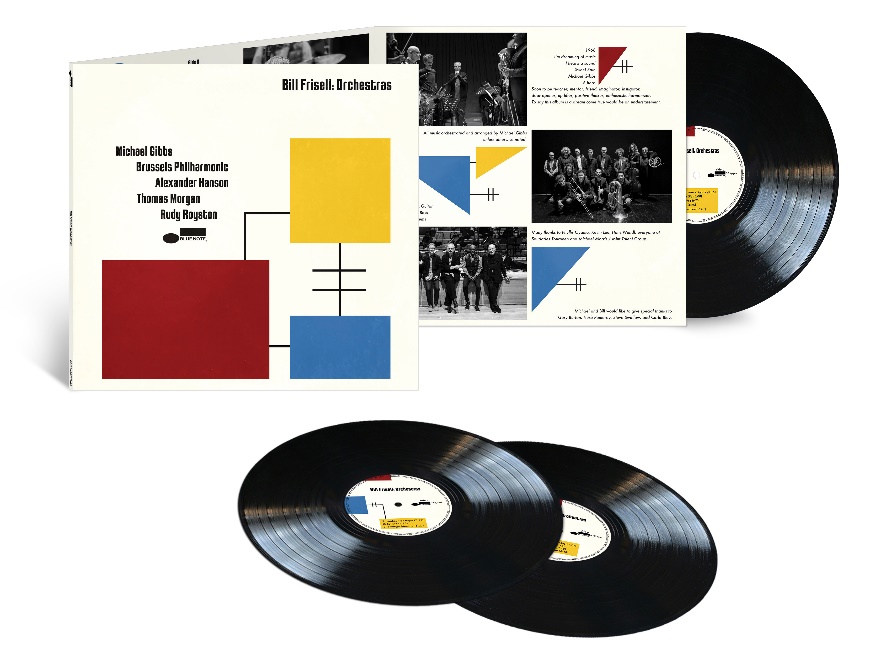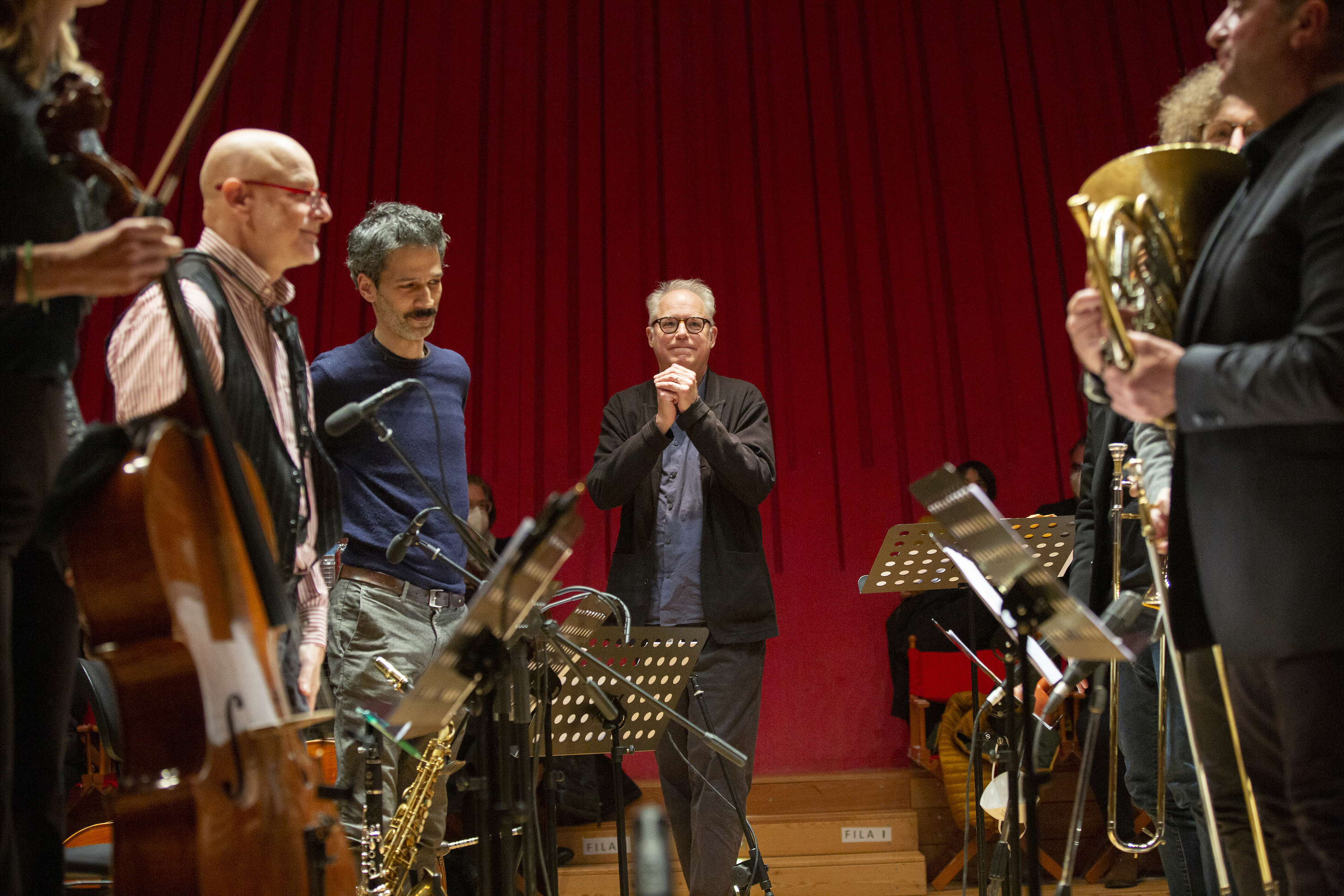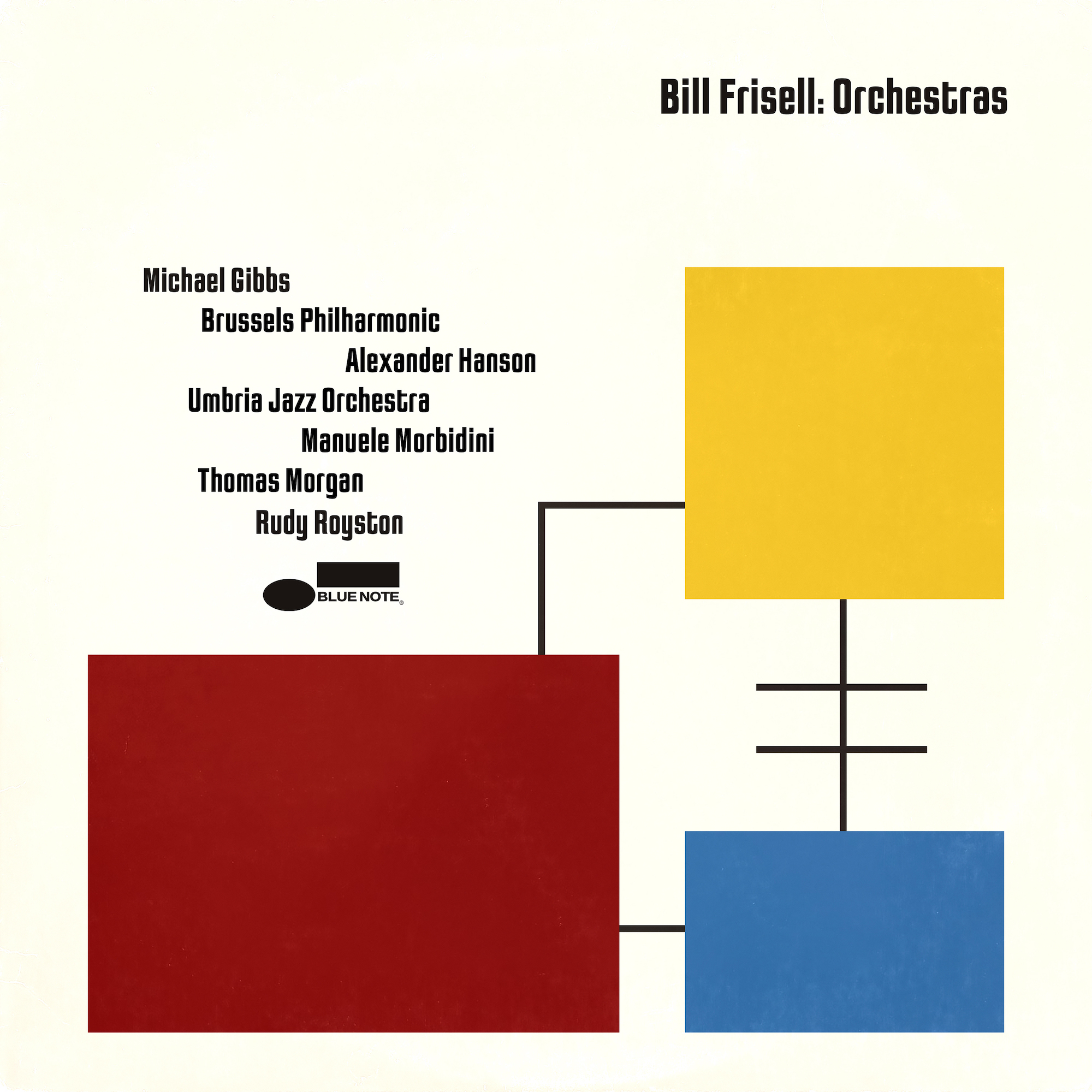Bill Frisell's "Orchestras" Featuring His Trio and in Collaboration With the Brussels Phil. & Umbria Jazz Orchestra
April 19th release on double vinyl +3rd album Blue Note store exclusive
Press release: In the trio format he’s favored throughout his career, the guitarist and composer Bill Frisell has always projected an orchestral scope through his remarkably complete sense of harmony, a unique gift for melodies that remain with you long after a performance, and a keen feel for how dynamic range can be used to convey emotion. But on his new double album Orchestras, which comes out April 19 on Blue Note Records, he makes those symphonic evocations a reality.
Produced by Lee Townsend, Orchestras documents two inspired concert hall engagements arranged by Michael Gibbs for Frisell’s trio with bassist Thomas Morgan and drummer Rudy Royston: LP1 featuring the nearly 60-piece Brussels Philharmonic, conducted by Alexander Hanson; and LP2 with the 11-piece Umbria Jazz Orchestra, under the musical direction of Manuele Morbidini. A Blue Note Store exclusive 3-LP set including a third album of additional material from the concerts is also available for pre-order today along with standard 2-CD and digital sets.
As he’s often done over the past four decades, Frisell uses a straightforward concept and a familiar songbook to bring about stirring revelations. To start, these 16 tracks showcase a level of comfort and interactivity that far transcends the vast majority of “with strings” projects on the jazz record shelf. Gibbs’ sweeping, singular orchestration, with its shades of Gil Evans and landmark film scores, moves nimbly within and around the trio’s telepathic rapport, and Frisell’s shimmering trademark tone melds gorgeously with strings and brass.
The result is a rare recording in which a sprawling symphonic ensemble moves as if by intuition, urging one of jazz’s best small groups toward their next spontaneous discovery. “The idea is that we’re always going to be on the edge of what we know,” Frisell says, “or hopefully off the edge of what we know, into some sort of uncharted territory. We were still playing whatever comes into our imagination.”
The roots of this agility can be found in Frisell’s half-century-deep relationship with Gibbs, among the most ingenious composer-arrangers in jazz history, whose visionary writing opened new pathways for modern jazz and for jazz’s ability to pull from adventurous rock and pop. Or, as Frisell describes his now 86-year-old lodestar: “a hero… teacher, mentor, friend, imaginator, instigator, door opener, uplifter, positive thinker, enthusiastic harmonizer.”
The program here acts as a kind of compilation for Frisell’s richly varied catalog, with oft-performed Frisell compositions like “Strange Meeting” and “Monica Jane” sharing space with his go-to standards and traditional numbers, among them Billy Strayhorn’s “Lush Life,” Stephen Foster’s “Beautiful Dreamer” and the protest anthem “We Shall Overcome,” given a triumphant, electrified reading in Italy. Two performances of Ron Carter’s “Doom” — which jazz fans will recognize as “Mood,” off Miles Davis’ E.S.P. — reach Bernard Herrmann levels of noir-tinted atmosphere, as does Gibbs’ overture of sorts, “Nocturne Vulgaire.” Gibbs’ arrangement for a take of “Sweet Rain,” in Belgium, works in perfect concert with Frisell’s porcelain signature sound to conjure up classic cinema, and much of Orchestras follows suit, as if scoring Hitchcock and Fritz Lang features anew.
Throughout Orchestras, the reciprocal flow of influence and admiration between Frisell and Gibbs is palpable. To begin, Gibbs’ dedication to and understanding of the musicians he’s writing for gives him the ability to use their harmonic and sonic aesthetic to inform his arranging. “If he listens to me play,” Frisell says, “he’s hearing the overtones of what it is I’m playing, and he has a way of expanding my own sound.”










































.png)








